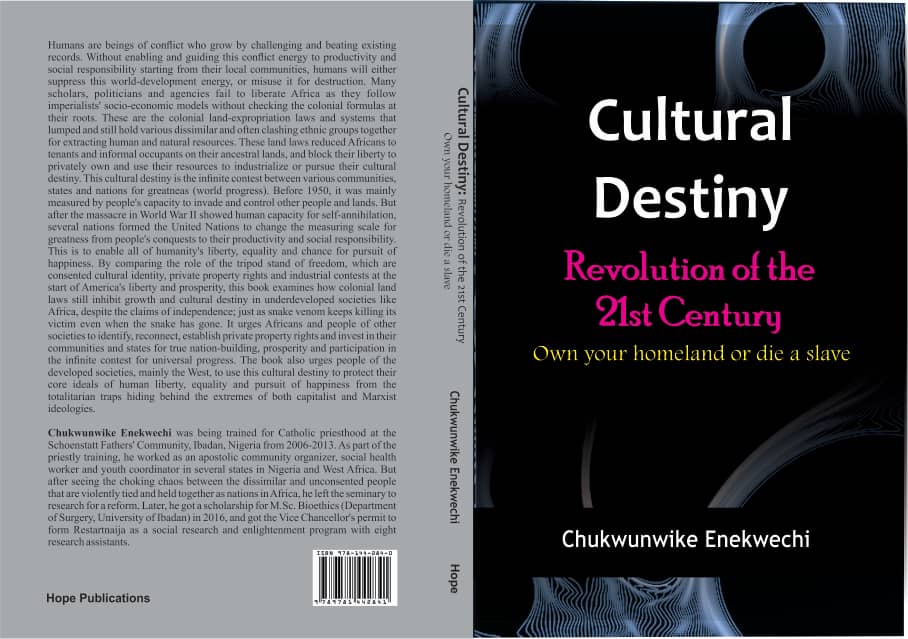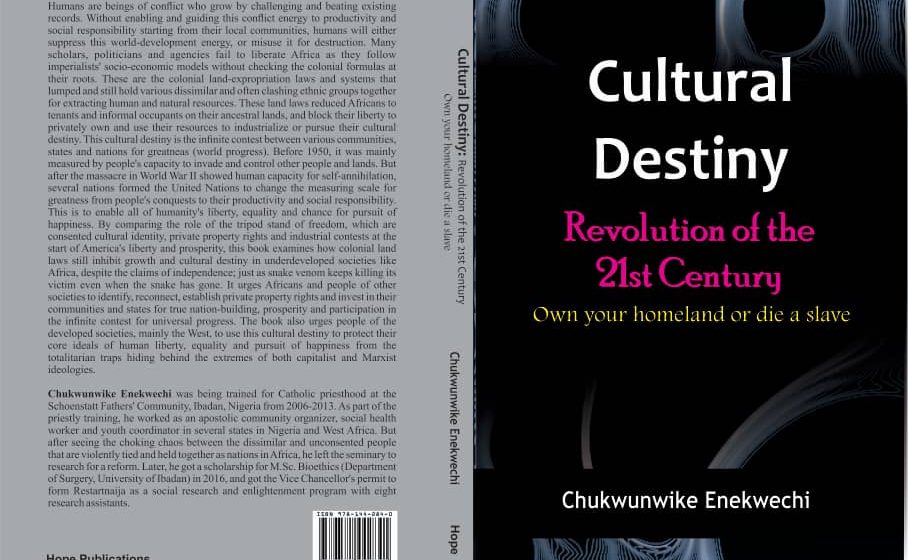Humans are beings of conflict who grow by challenging and beating existing records. Without enabling and guiding this conflict energy to productivity and social responsibility starting from their local communities, humans will either suppress this world-development energy, or misuse it for destruction.
Many scholars, politicians and agencies fail to liberate Africa as they follow imperialists’ socio-economic models without checking the colonial formulas at their roots. These are the colonial land-expropriation laws and systems that lumped and still hold various dissimilar and often clashing ethnic groups together for extracting human and natural resources. These land laws reduced Africans to tenants and informal occupants on their ancestral lands, and block their liberty to privately own and use their resources to industrialize or pursue their cultural destiny.
This cultural destiny is the infinite contest between various communities, states and nations for greatneas (world progress). Before 1950, it was mainly measured by people’s capacity to invade and control other people and lands. But after the massacre in World War II showed human capacity for self-annihilation, several nations formed the United Nations to change the measuring scale for greatness from people’s conquests to their productivity and social responsibility. This is to enable all of humanity’s liberty, equality and chance for pursuit of happiness.
By comparing the role of the tripod stand of freedom, which are consented cultural identity, private property rights and industrial contests at the start of America’s liberty and prosperity, this book examines how colonial land laws still inhibit growth and cultural destiny in underdeveloped societies like Africa, despite the claims of independence; just as snake venom keeps killing its victim even when the snake has gone. It urges Africans and people of other societies to identify, reconnect, establish private property rights and invest in their communities and states for true nation-building, prosperity and participation in the infinite contest for universal progress. The book also urges people of the developed societies, mainly the West, to use this cultural destiny to protect their core ideals of human liberty, equality and pursuit of happiness from the totalitarian traps hiding behind the extremes of both capitalist and Marxist ideologies.
Copies will be available at the bookshops at the University of Ibadan, Unilag and OAU from 20th January, 2025.




